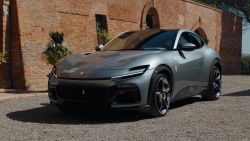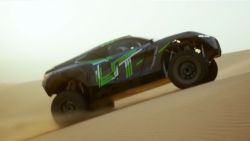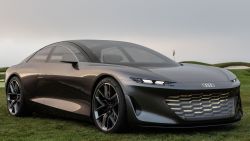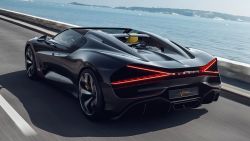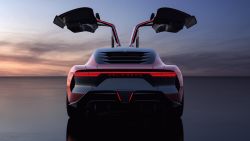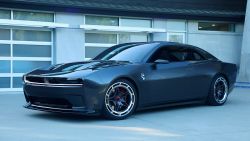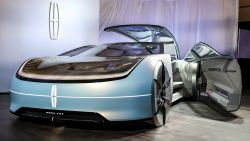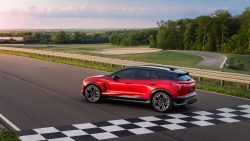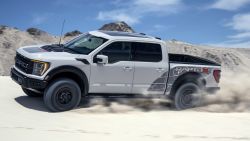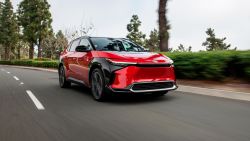Nikola Corp., a hydrogen and electric truck startup that recently inked a $2 billion stock deal with General Motors, responded Monday to a short seller’s report that sent the company’s stock plunging last week.
Hindenburg Research, which makes money by betting against companies, published a report last Thursday alleging a range of misdeeds, including that Nikola and its founder and executive chairman Trevor Milton presented a prototype truck as being closer to market than it actually was. The report also said the company mischaracterized a business deal as being worth more than it was. CNN was unable to authenticate the claims made in Hindenburg’s report.
The shares plunged for two days straight, first falling 11% on Thursday and a further 14.5% on Friday. On Monday, the stock recovered some of those losses, climbing some 10%.
“These allegations by the short seller are false and misleading, and designed to manipulate the market to profit from a manufactured decline in Nikola’s stock price,” Nikola said in response to a number of Hindenburg allegations.
On Friday, the company announced it had hired a law firm to explore legal action against Hindenburg and said it plans to bring the matter before the Securities and Exchange Commission.
Hindenburg founder Nathan Anderson called Nikola’s response “completely inadequate” in a statement and later released another report, claiming that “Nikola either confirmed or sidestepped virtually everything we wrote about.”
While it did not deny some of the details of Hindenburg’s allegations, Nikola said the claims were presented in a misleading and disparaging light.
In its report, Hindenburg Research noted that it had corroborated a Bloomberg report from June, which claimed that Milton had ”exaggerated” the capabilities of the Nikola One, a hydrogen fuel cell electric semi-truck, when he unveiled it. Milton had said the Nikola One “fully functions” at the 2016 launch event. The Bloomberg report, however, cited unnamed sources who said the truck at the event was not actually drivable and was missing parts.
In an interview with Bloomberg published at the time, Milton said he “never deceived anyone” and that the certain parts had been removed to ensure safety.
The company elaborated in its response Monday that the Nikola One was “designed to be powered and driven by its own propulsion.” But that the company ultimately did not complete that design because it decided to refocus its resources on its next generation battery-powered Nikola Two. The company says prototypes of the Nikola Two are capable of self-propulsion.
Hindenburg’s report also alleges that Nikola posted a “staged” video on its YouTube channel in January, 2018. The video showed a Nikola One semi-truck supposedly driving on a flat desert road. But, Hindenburg alleges the truck had simply been towed to the top of a long shallow hill and allowed to coast down without using any power, according to an unnamed “former employee” who spoke with Nikola’s Chief Engineer, according to Hindenburg.
In its response, Nikola did not deny that was the case, but noted that “Nikola never stated its truck was driving under its own propulsion in the video, although the truck was designed to do just that.” Also, Nikola said that the company’s investors “knew the technical capability of the Nikola One at the time of their investment.”
While that truck was a non-running prototype, it was technically capable of operation once fully assembled, Nikola said. Also, the company said it has since produced fully operational prototype trucks.
“The fact is, Nikola has real working hydrogen fuel-cell powered semi-trucks,” Nikola said in its response. It also provided links to other videos that, the company says, show other Nikola trucks driving.
Hindenburg’s report also alleged that Milton had greatly exaggerated the size of a deal between dHybrid, a predecessor company to Nikola, and the trucking company Swift Transportation. The Hindenburg report also linked to a lawsuit filed by Swift against Milton’s earlier company. Hindenburg cited one unnamed source familiar with Swift’s lawsuit who wrote that the deal was worth “only $16 million,” but Nikola said that figure left out vehicle purchase options that gave the deal a total potential value of $250 million.
Nikola added that the deal was from 2010, and “has no connection with or association to Nikola.”
Hindenburg’s report also charged that Nikola had outsourced the development of a small off-road vehicle, the NZT, to another company. Nikola responded that it “has spent millions of dollars” readying the vehicle for production “using both internal and external resources.” Nikola did not indicate whether the bulk of that work was being done by Nikola or by outside partners.
Hindenburg also pointed to parts produced by outside vendors that were being used in Nikola prototypes and demonstration vehicles and that brand markings in these parts were covered up in a promotional video. Nikola countered that it was just following a longstanding industry practice of using parts from other manufacturers while its own were still being developed.
These parts were used in prototype vehicles, Nikola said, “some of which may be subsequently swapped out for its own parts in production.”
None of the allegations in Hindenburg’s report pertain to Nikola’s recent deal with GM, however.
Under the terms of the deal, GM announced it was taking an 11% equity stake in Nikola and, in return, would build electric and hydrogen-powered versions of the Badger using GM’s own engineering. GM executives said Tuesday that it conducted “appropriate due diligence” before signing the agreement with Nikola.



